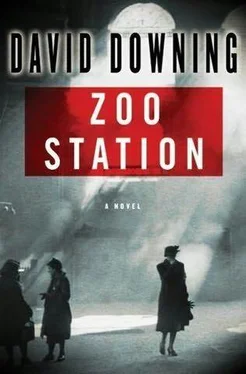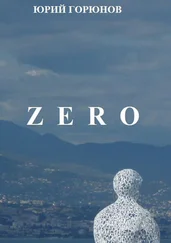David Downing - Zero Station
Здесь есть возможность читать онлайн «David Downing - Zero Station» весь текст электронной книги совершенно бесплатно (целиком полную версию без сокращений). В некоторых случаях можно слушать аудио, скачать через торрент в формате fb2 и присутствует краткое содержание. Жанр: Шпионский детектив, на английском языке. Описание произведения, (предисловие) а так же отзывы посетителей доступны на портале библиотеки ЛибКат.
- Название:Zero Station
- Автор:
- Жанр:
- Год:неизвестен
- ISBN:нет данных
- Рейтинг книги:5 / 5. Голосов: 1
-
Избранное:Добавить в избранное
- Отзывы:
-
Ваша оценка:
- 100
- 1
- 2
- 3
- 4
- 5
Zero Station: краткое содержание, описание и аннотация
Предлагаем к чтению аннотацию, описание, краткое содержание или предисловие (зависит от того, что написал сам автор книги «Zero Station»). Если вы не нашли необходимую информацию о книге — напишите в комментариях, мы постараемся отыскать её.
Zero Station — читать онлайн бесплатно полную книгу (весь текст) целиком
Ниже представлен текст книги, разбитый по страницам. Система сохранения места последней прочитанной страницы, позволяет с удобством читать онлайн бесплатно книгу «Zero Station», без необходимости каждый раз заново искать на чём Вы остановились. Поставьте закладку, и сможете в любой момент перейти на страницу, на которой закончили чтение.
Интервал:
Закладка:
He started up the busy Kurfьrstendamm, or the Ku’damm, as everyone called it. The Cafй Uhlandeck, where he was supposed to meet Effi, was a ten minute stroll away, and he still had half an hour to spare. An African parrot in a pet shop caught his attention: It was the sort of birthday present Effi would love, but he doubted her ability to look after it properly. For one thing she was away too often. For another, she was Effi.
A woman in a fur coat emerged from the shop with two pedigree schnauzers in tow. Both had enamel swastikas fastened to their collars, and Russell wondered whether they had pictures of the Fьhrer pinned up inside their kennels. Would that be considered a sign of respect, or the lack of such? Political etiquette in the Third Reich was something of a minefield.
He passed the “aryanized” Grunfeld factory, and the site of another destroyed synagogue. A photographic album of such sites would be a best-seller in Nazi Germany: Judenfrei: The Photographic Record. Page after page of burned synagogues, followed by “then and now” pictures of aryanized firms. A forward by the Fьhrer, which would probably turn out to be longer than the book. The lucky author would probably get invites to Goering’s hunting weekends and Streicher’s whipping orgies.
Russell stopped and watched a tram cross the intersection, bell clanging. Why was he feeling so angry this morning? Was it the kindertransport and the Wiesner girls? Or just six years of accumulated disgust? Whatever it was, it served no purpose.
Reaching the Cafй Uhlandeck he sat at one of the outside tables and stared back down the Ku’damm in search of Effi’s familiar silhouette. He had met her a few days before Christmas 1933, while researching a piece on Leni Riefenstahl for a Hollywood gossip magazine. At a studio party someone had pointed out a slim, black-haired woman in her late twenties, told Russell that her name was Effi Koenen, and that she had appeared alongside Riefenstahl when the latter was still acting in films, rather than directing them.
Effi’s part in that film, as she was only too happy to inform him, had consisted of “five lines, two smiles, one pout, and a dignified exit.” She had thought Riefenstahl a good actress, but had hated Triumph of the Will for its humorlessness. Russell had asked her out to dinner, and rather to his astonishment she had accepted. They had got on like a house on fire-in the restaurant, on the half-drunken walk home to her flat, in her large soft bed. Five years later, they still did.
The flat was a couple of blocks north of the Ku’damm, a three room affair which her wealthy parents had bought in the early 1920s from a victim of the Great Inflation, and given to her as a twenty-fifth birthday present. Her acting career had been reasonably successful-a film here, a play there, a musical if nothing else was on offer-without making her rich or particularly famous. She was occasionally recognized on the street when Russell was with her, and almost always for the part she had played in a 1934 film, the wife of a stormtrooper beaten to death by communists. That had been a “seventeen lines, one smile, one scream, dignified-at-funeral” part.
She was currently appearing in Barbarossa, a musical biography of the twelfth-century Holy Roman Emperor, Frederick I. As one of his generals’ wives, she sang part of the joyous send-off when they left for the Crusades, and part of the lament for those who failed to come home. Like most of the cast, she wasn’t much of a singer, but no one had bothered to include musical ability, a decent script, or memorable songs in the production. It was, as one of the early Berlin reviews put it, “a hymn to national consciousness.”
Much to Effi’s disgust it had pulled in large audiences, both in Berlin during the weeks leading up to Christmas and across the Reich during the holiday season itself. A second season in Berlin was beginning that night and Effi expected the seats to be full again: “All those who couldn’t believe how bad it was the first time will be coming back to make sure.”
Russell hadn’t seen her for almost a fortnight, which seemed a long time. They generally spent as much of the weekend together as their-mostly her-work allowed, along with at least one night in midweek and an unpredictable number of lunches and afternoons. She was fond of saying that her three-year marriage to a now-famous actor had left her with a love of living alone, and had never suggested that Russell move in with her. He told himself and everyone else that he was happy, more than happy, with their days and nights together, and happy to spend the other days and nights without her. And most of the time he believed it. Just occasionally he found himself thinking that love was indivisible, and that loving someone was resenting each hour apart. He did love Effi, from her long raven hair to her small brown toes. He loved everything about her, he thought, looking at his watch, except for her complete inability to arrive anywhere on time.
It was 12:25 when she finally appeared. She was wearing the black overcoat which almost reached her ankles, a new crimson scarf wrapped around her neck, chin, and mouth, and the Russian fur hat she had bought in Moscow ten years before, yet even trussed up like a mummy she turned the heads of male passersby. “I’ve got a cold,” was the first thing she said once they’d embraced. “I need soup.”
Russell suggested that they go inside, but she refused. “Fresh air’s the best thing for colds,” she insisted.
He got them both bowls of soup and watched her demolish hers. “We got in at four in the morning,” she said between spoonfuls, “and we’ve got to be in early this evening to discuss some changes the musical director has in mind.”
“A new score?” Russell asked.
“If only. It’ll be nothing. He just has to justify the fact that he’s still being paid.” She started tearing up a roll and dropping it in the soup. “You’ll pick me up after the show?”
“Of course. I’ll come and watch the last half hour if they’ll let me in. It’s the same man on the door?”
“I don’t know. But I’ll make sure they know you’re coming.” She spooned a chunk of sodden bread into her mouth. “This is good. I feel better already. How have you been? How’s Paul?”
“Haven’t seen him yet. But he sounds all right.”
“Danzig?”
“Suitably gloomy,” he said. He told her about the stamp wars, which made her laugh, and the Soviet request for articles, which drew a raised eyebrow. “It’s just work,” he said. There didn’t seem any point in mentioning the oral reports, or in spoiling their reunion with an account of the kindertransport and his day in jail.
She used the last of his roll to soak up the last of her soup. “I feel much better,” she said again. “And I’ve still got three hours before I have to be at the theater.” She reached out a slender hand for his. “Shall we go back to the flat?”
Later that evening, Russell arrived backstage in time to hear the lament for the fallen heroes. It seemed more Wagnerian than ever, and he realized that the musical director had decided to apply the Third Reich’s guiding principle-never speak when you can shout. The military widows now had an entire choir of breast-swelling Valkyries to augment their lamentations. The front rows of the audience looked suitably stunned.
After the show, Russell talked football with the stage-door-keeper while he waited for Effi. She emerged after half an hour or so, still snuffling but full of post-performance energy. It was clear and cold outside, the sidewalks crowded with people. They walked arm in arm past the entrance to the aquarium, and along the southern side of the zoo toward the glowing glasshouse which straddled the elevated lines at Zoo Station. The station buffet was doing a roaring trade, but they managed to find a couple of stools and order a nightcap. This was the last place in Berlin where Jews could still buy a coffee, but there were no obvious Jewish faces in evidence. The city by night was an Aryan preserve.
Читать дальшеИнтервал:
Закладка:
Похожие книги на «Zero Station»
Представляем Вашему вниманию похожие книги на «Zero Station» списком для выбора. Мы отобрали схожую по названию и смыслу литературу в надежде предоставить читателям больше вариантов отыскать новые, интересные, ещё непрочитанные произведения.
Обсуждение, отзывы о книге «Zero Station» и просто собственные мнения читателей. Оставьте ваши комментарии, напишите, что Вы думаете о произведении, его смысле или главных героях. Укажите что конкретно понравилось, а что нет, и почему Вы так считаете.












